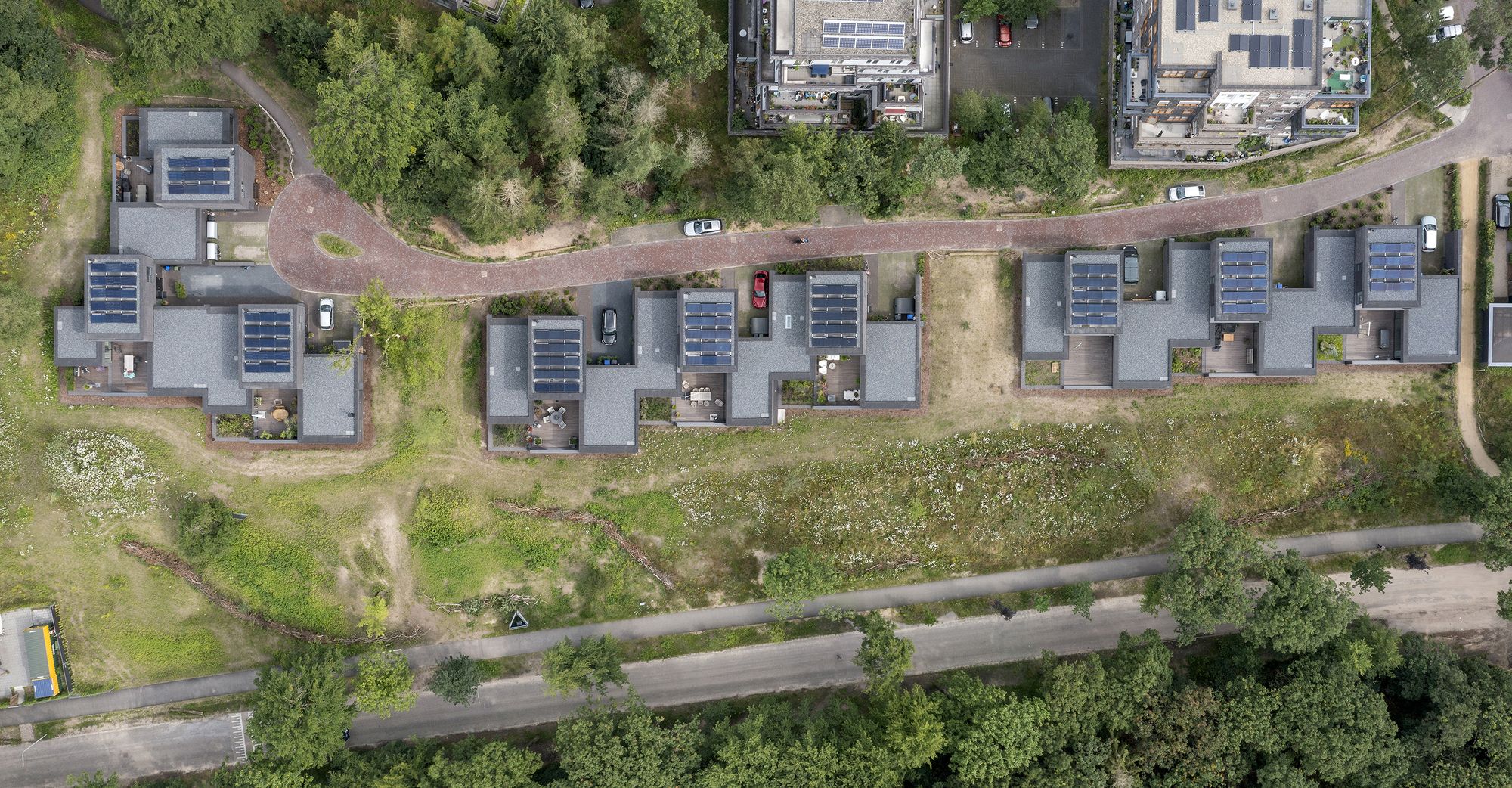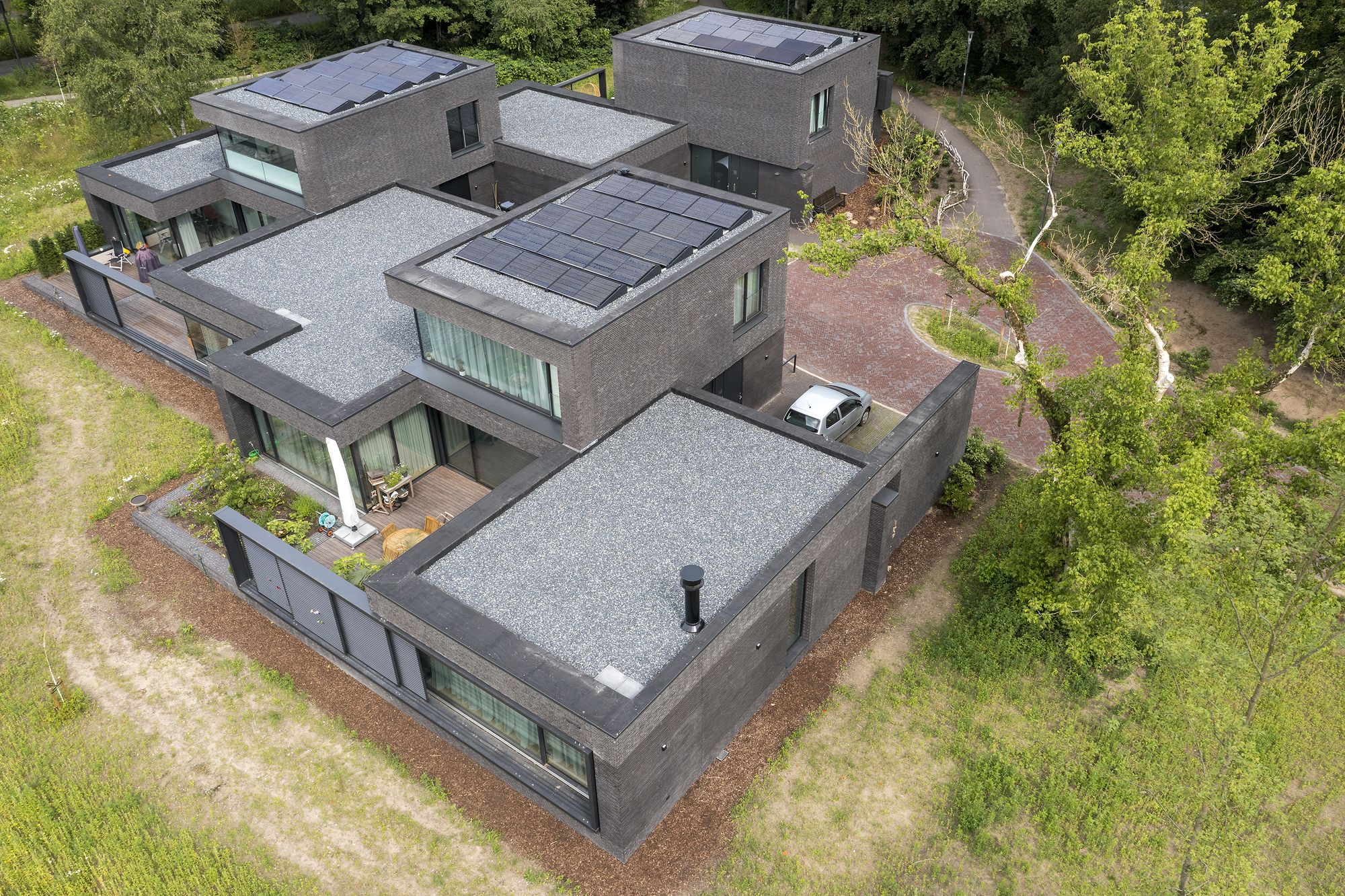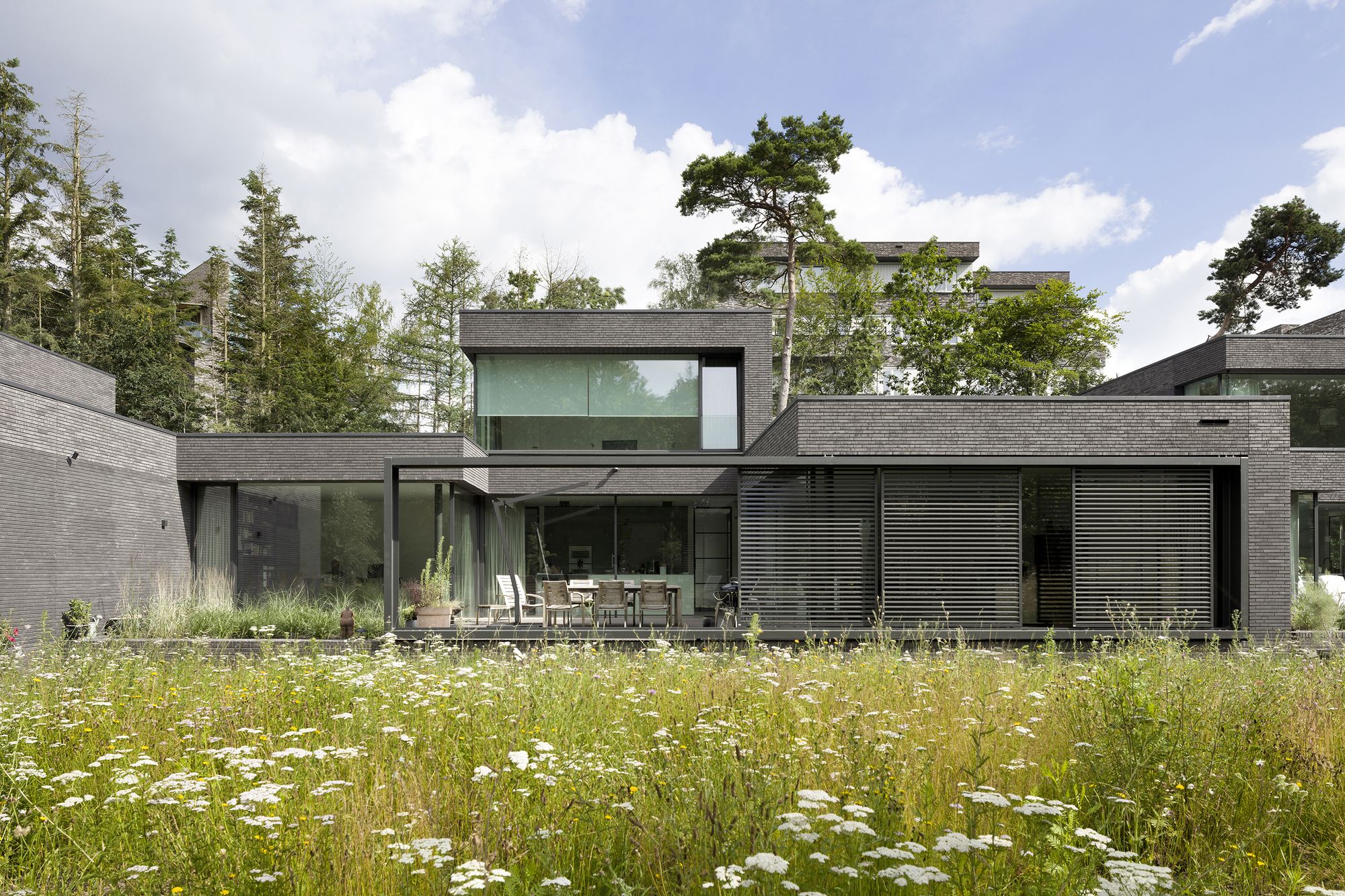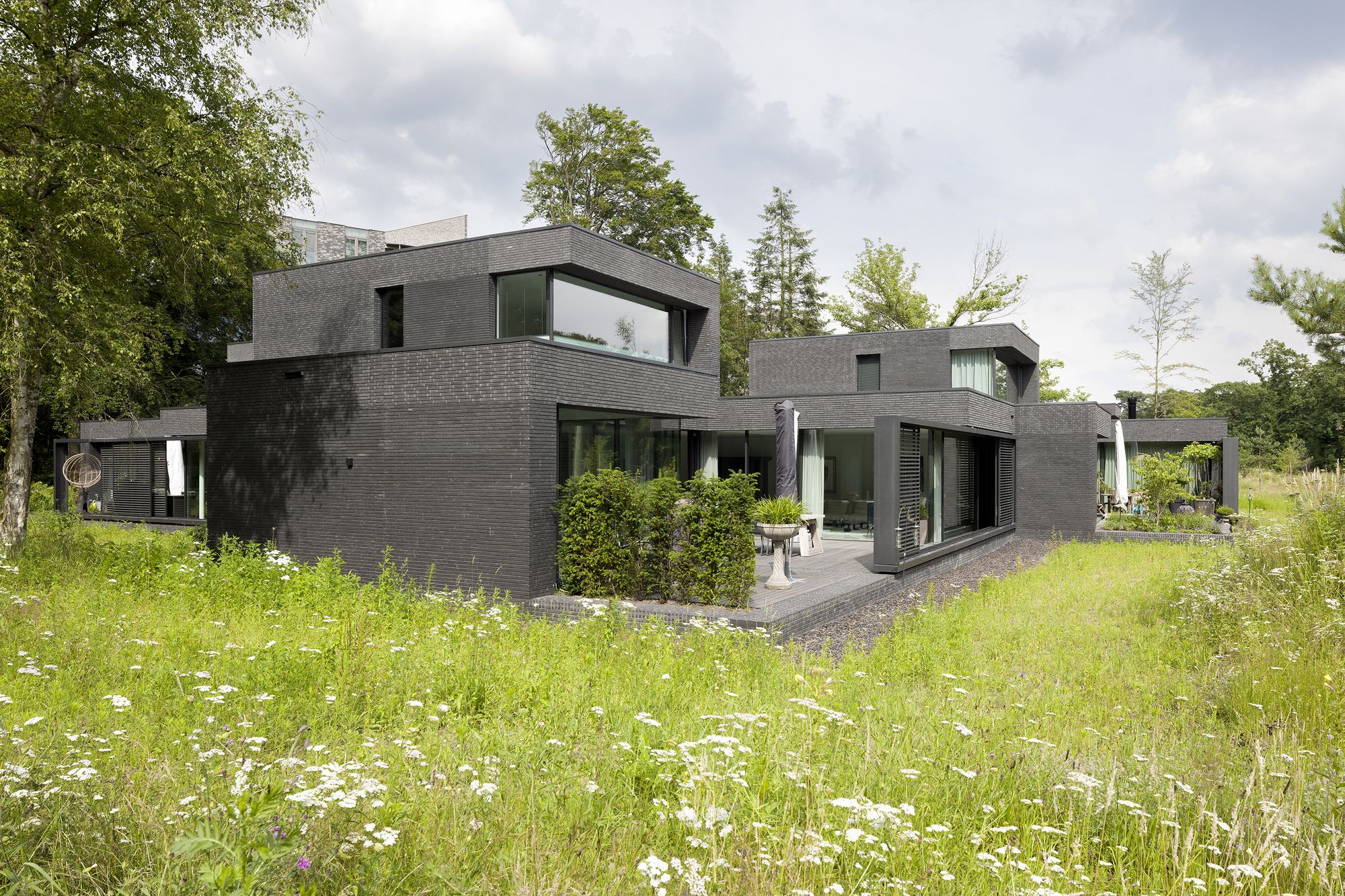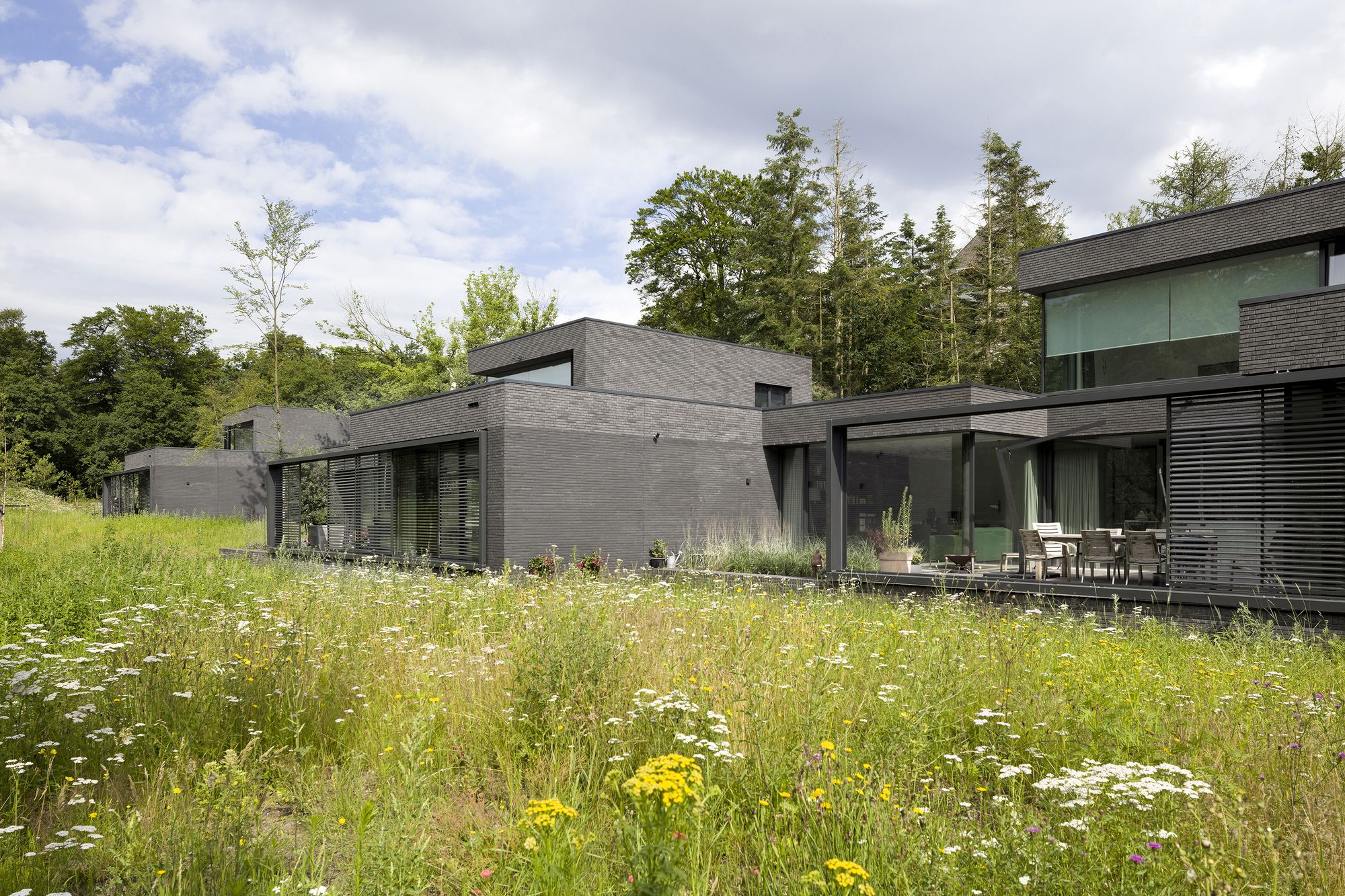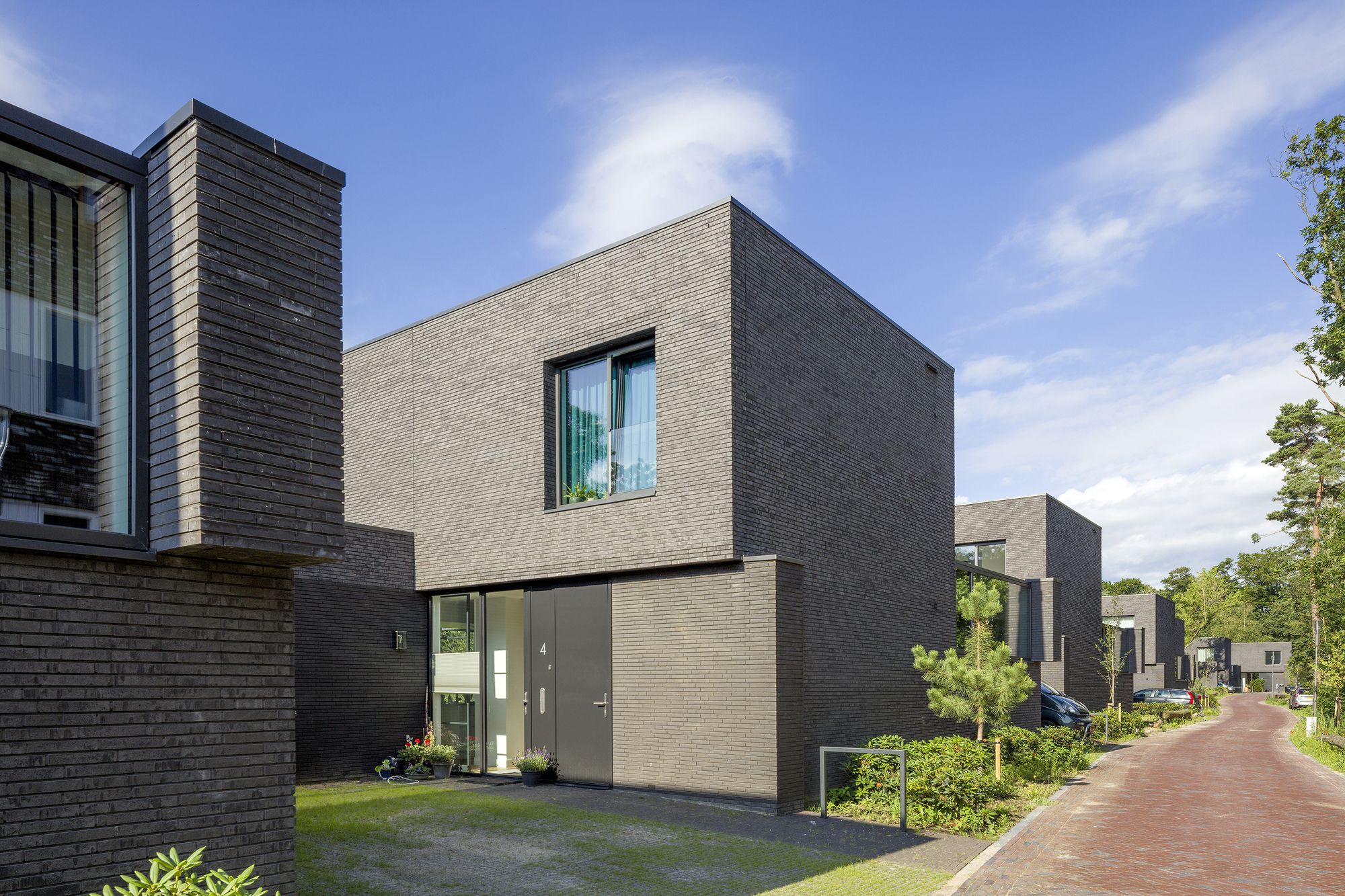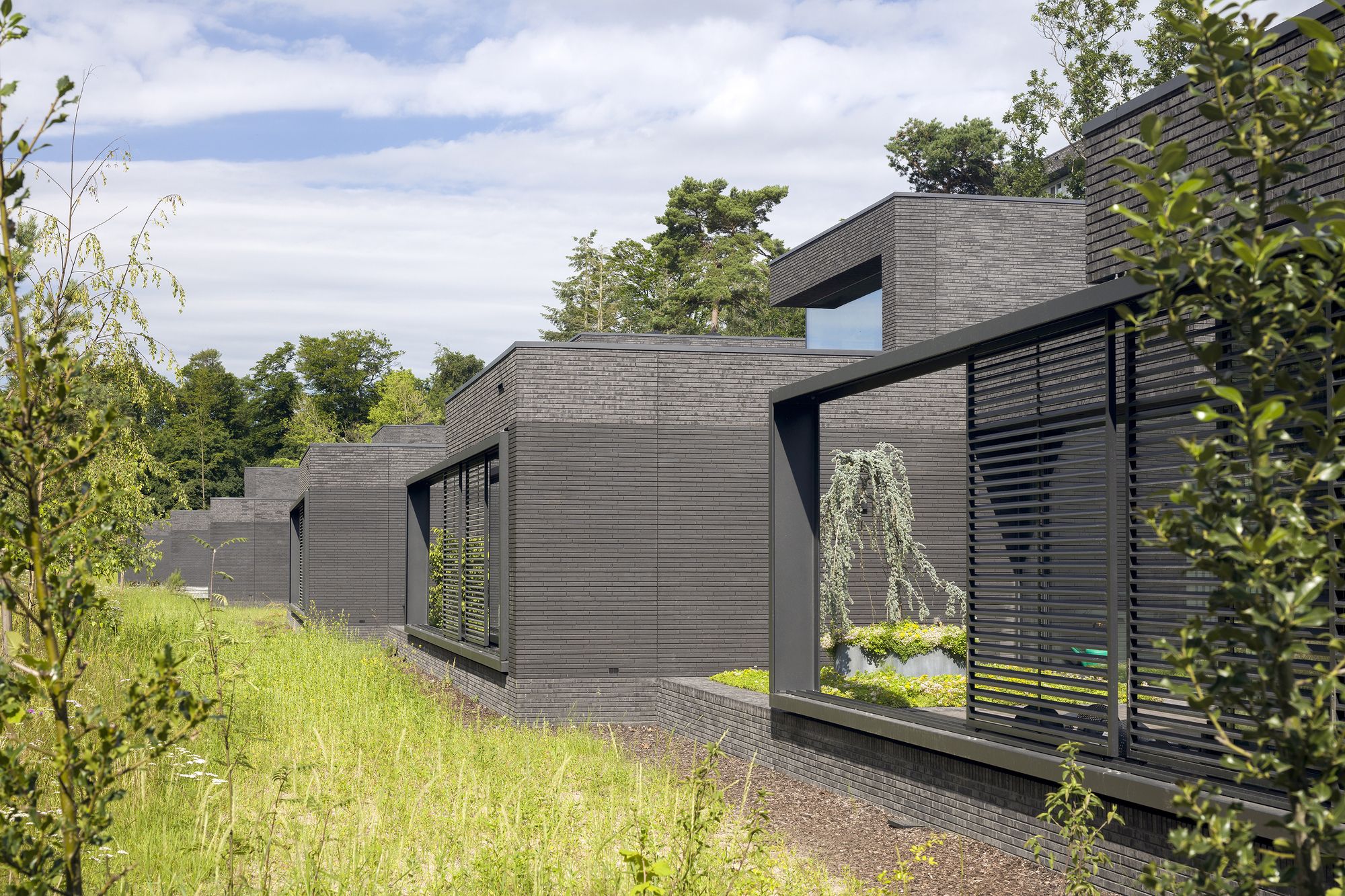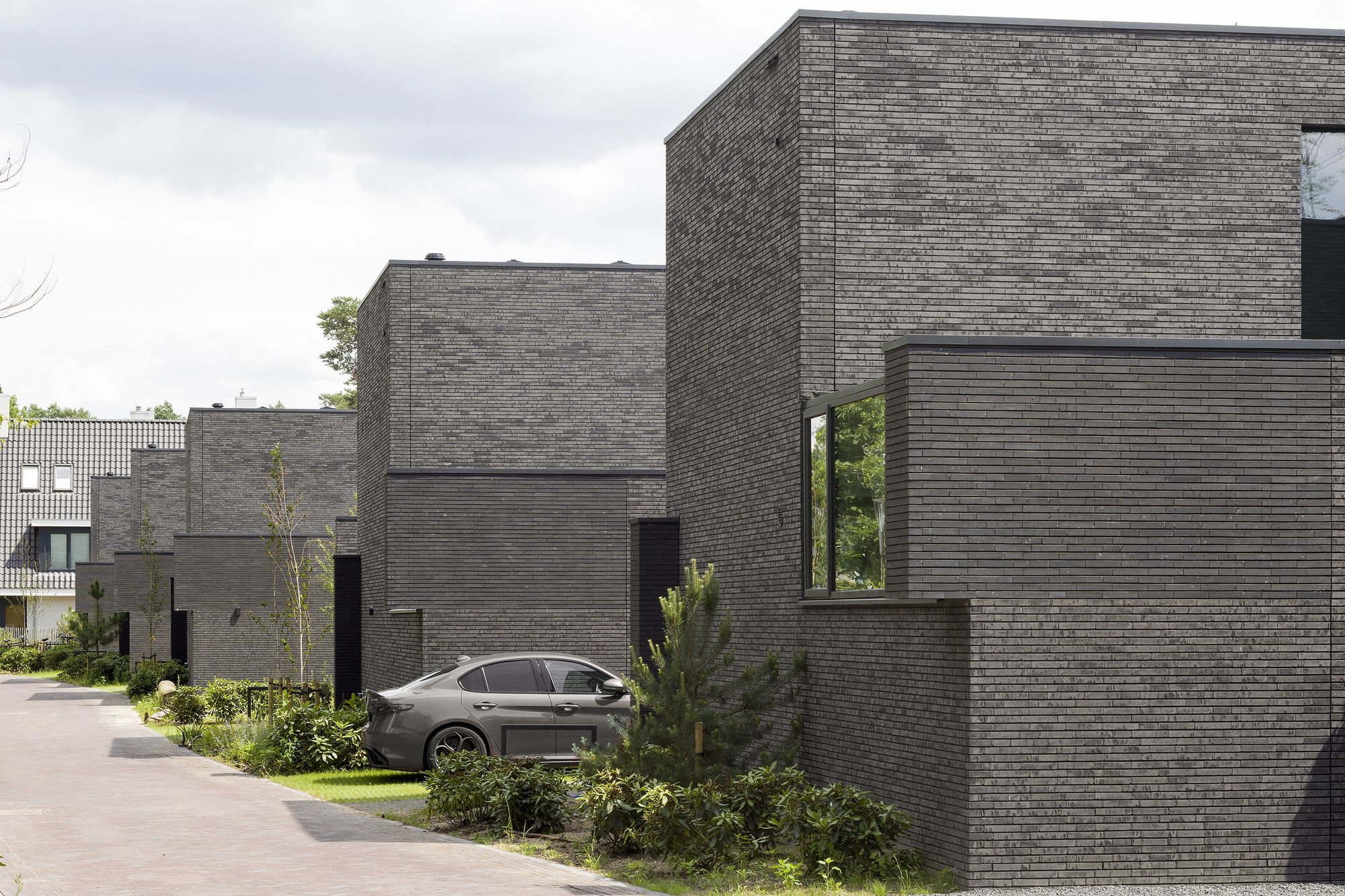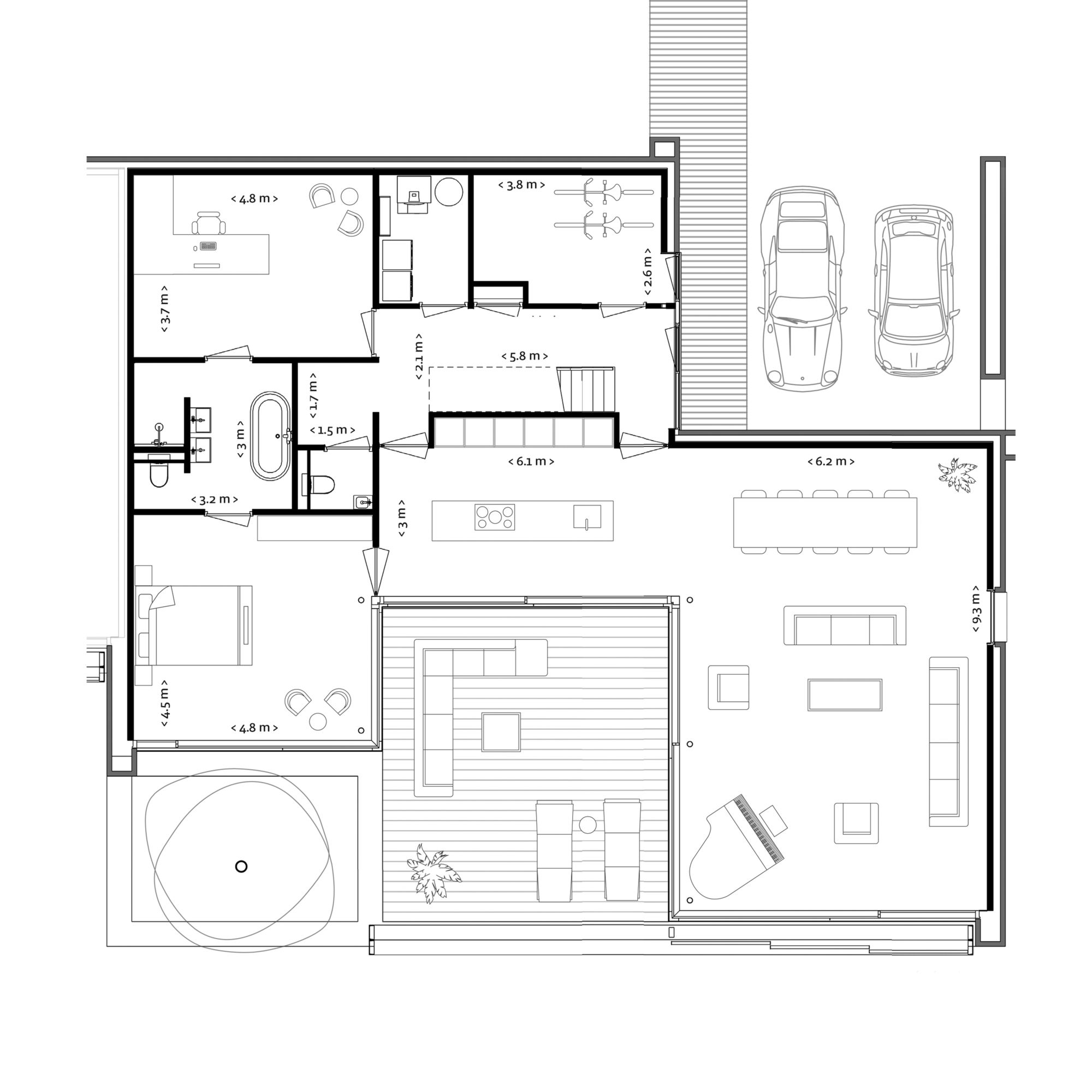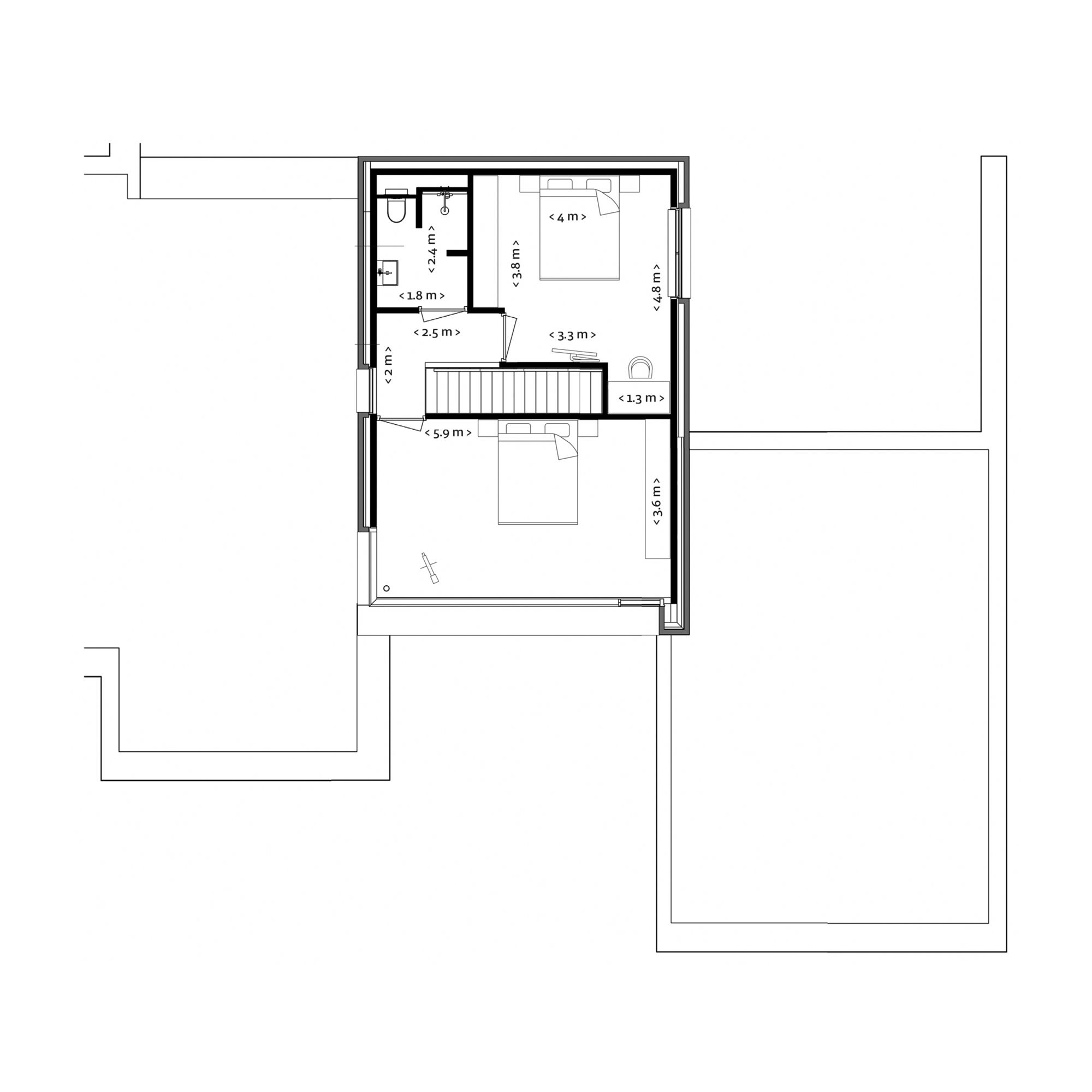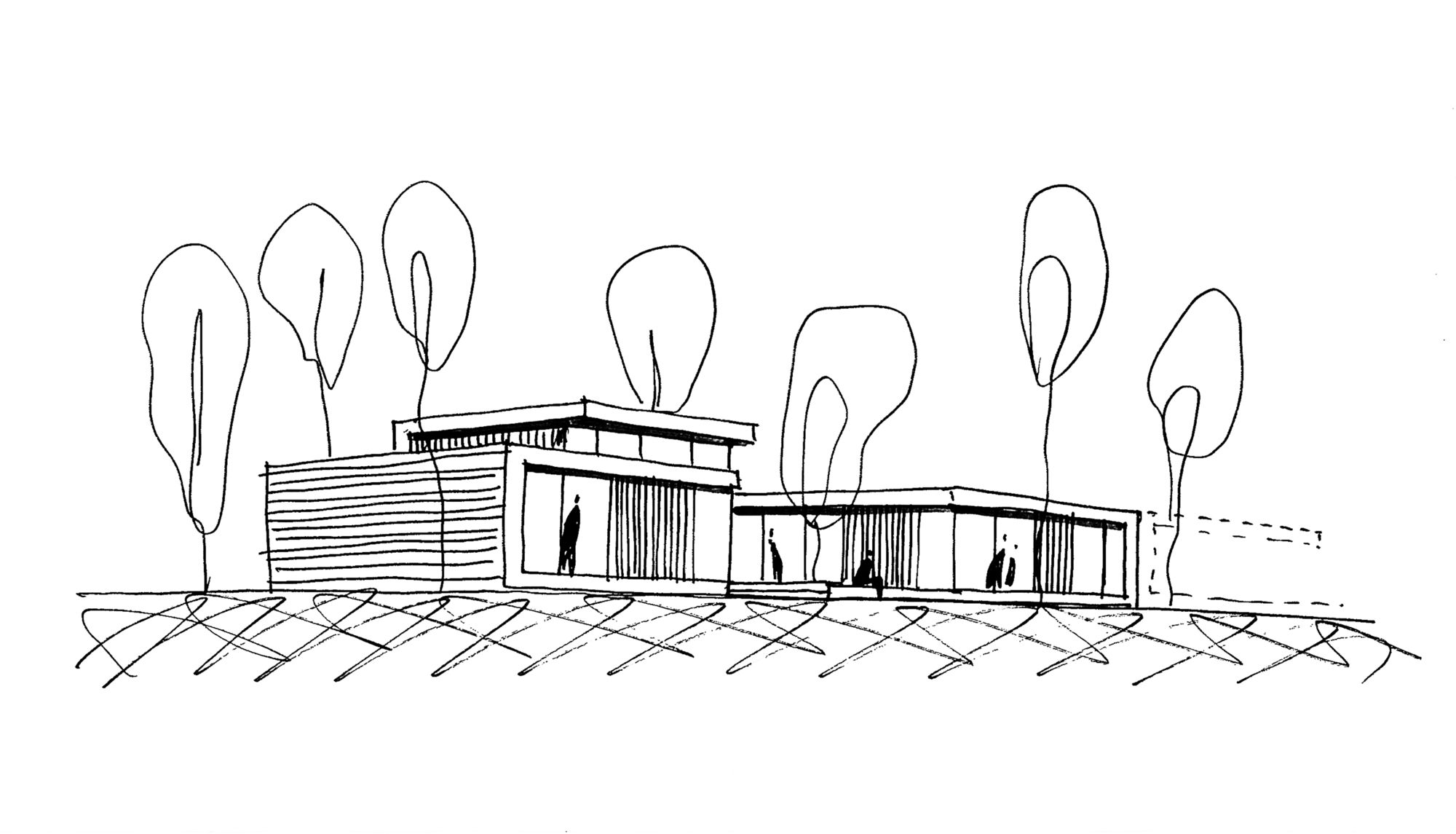The neighborhood Kerckebosch in Zeist (Dutch city between Utrecht and Amersfoort) undergoes a drastic transformation. Eleven outdated uniform apartment buildings in the forest are being replaced by a completely different neighborhood plan based on the “Scheggenmodel”- a model of interlocking “wedges” alternating the forest cover with the clearings where new buildings of differentiated housing typologies are being constructed.
Together with the residents, business owners, and public-interest organizations the development company WOM Kerckenbosch made the integral neighborhood plan. In cooperation with WOM, wUrck produced detailed plans for the entire neighborhood, including the public space design for the wedge-shaped forest clearings, the infrastructure, and the nature areas in-between.
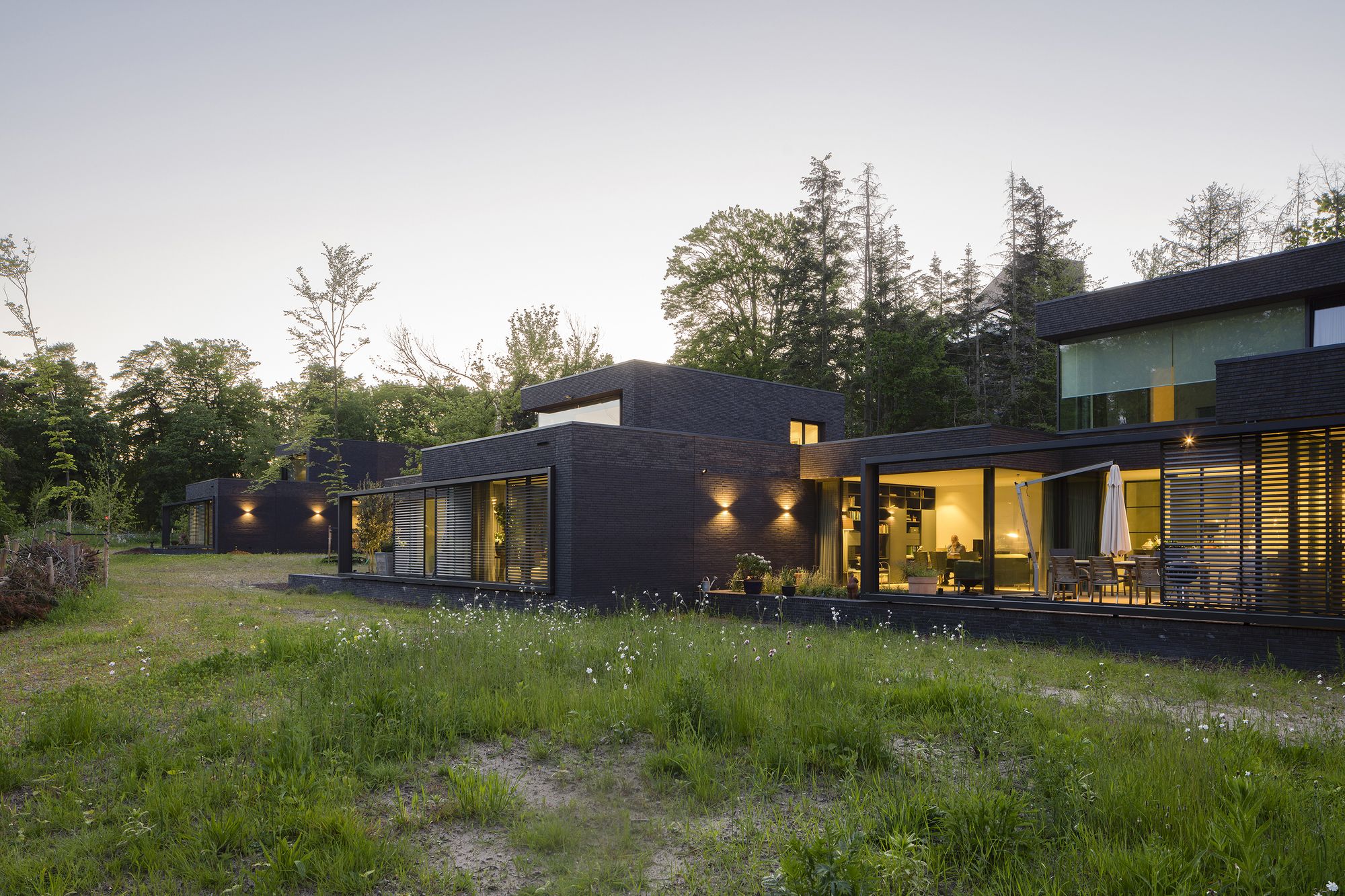
© Rob van Esch
In 2018 MOD Invest asked wUrck to design universal age-accommodating dwellings in one of the “scheggen”. The sustainable villas were constructed by BouwXS and delivered to the owners in 2021.
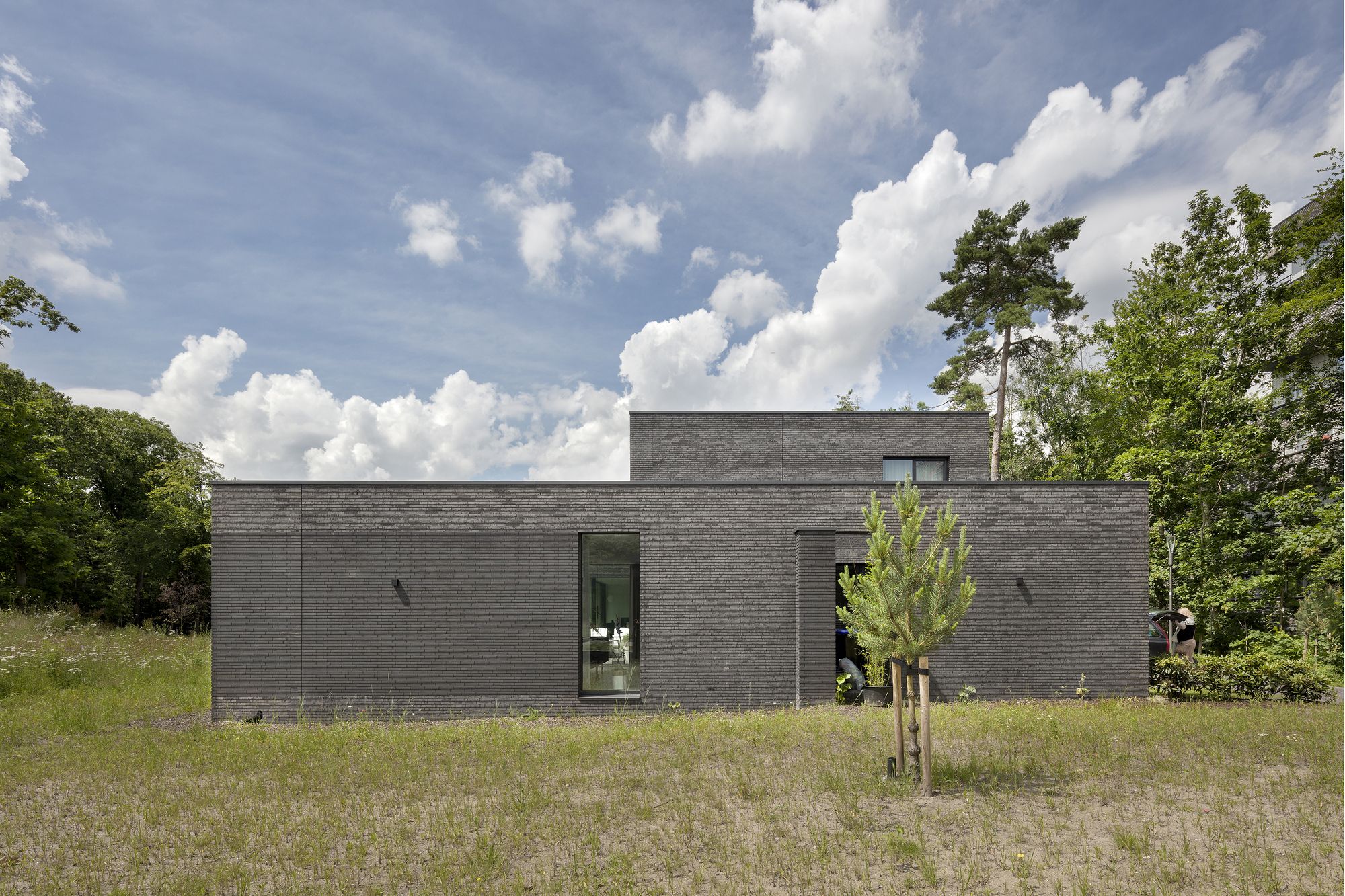
© Rob van Esch
Combined in groups of three, the villas meander through the forest respecting existing trees. They look like dark-bodied brick monoliths carefully integrated into the landscape. The villas are situated on the neighborhood’s edge. They have a relatively closed entrance façade facing the existing apartment buildings behind them. On the opposite side, the villas open themselves completely to the characteristic Utrecht landscape and the sun.
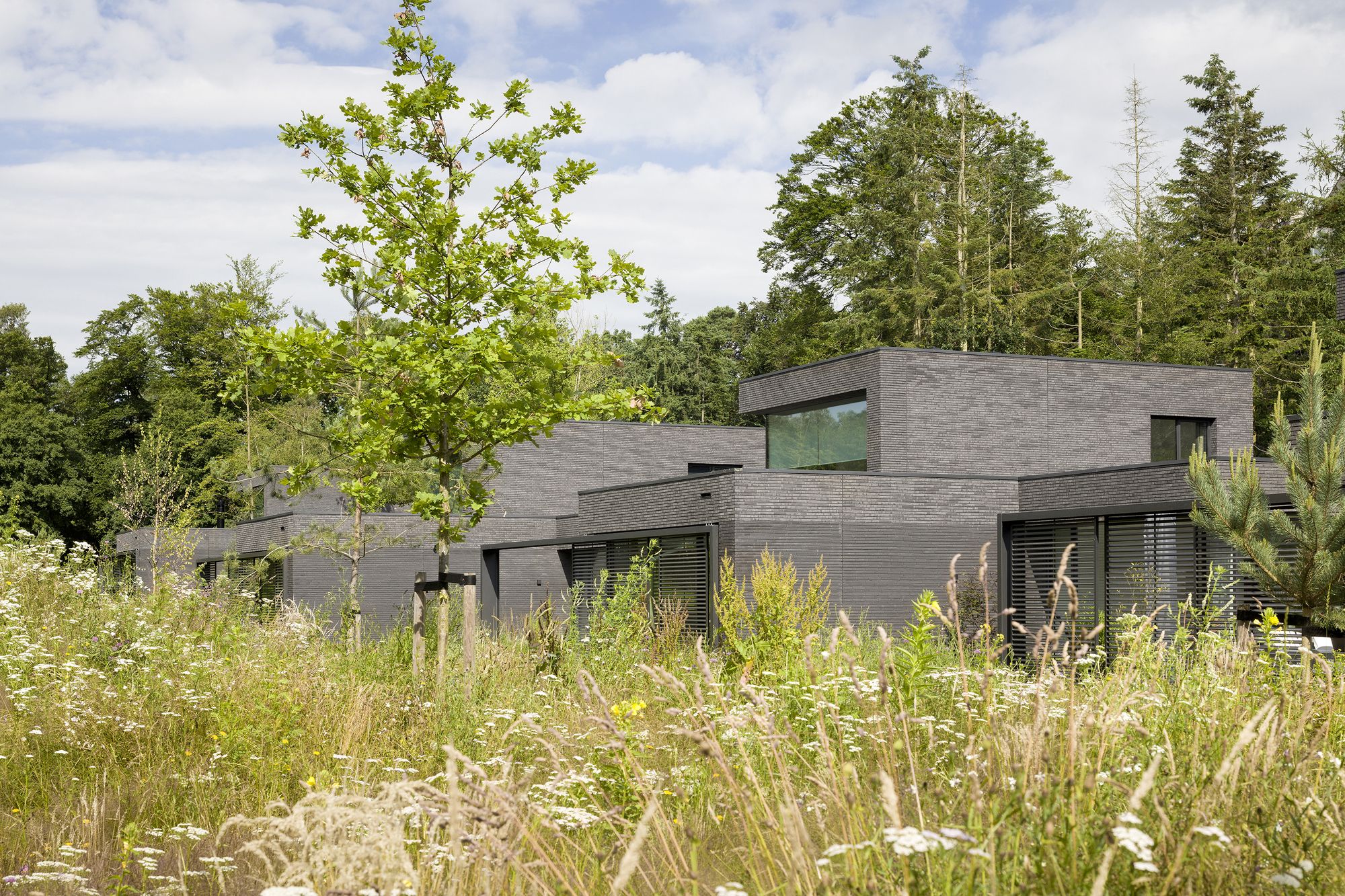
© Rob van Esch
Carefully integrated into the forest, wUrck chose spacious “patio-terraces” instead of private gardens. The patio terraces are partially embedded into the villas’ volume and raised above the natural grade. Such a set-up creates privacy without introversion. The terrace users can sit outside, protected from prying eyes, and enjoy beautiful diagonal sightlines into the landscape. The relationship with the surrounding is maximized.
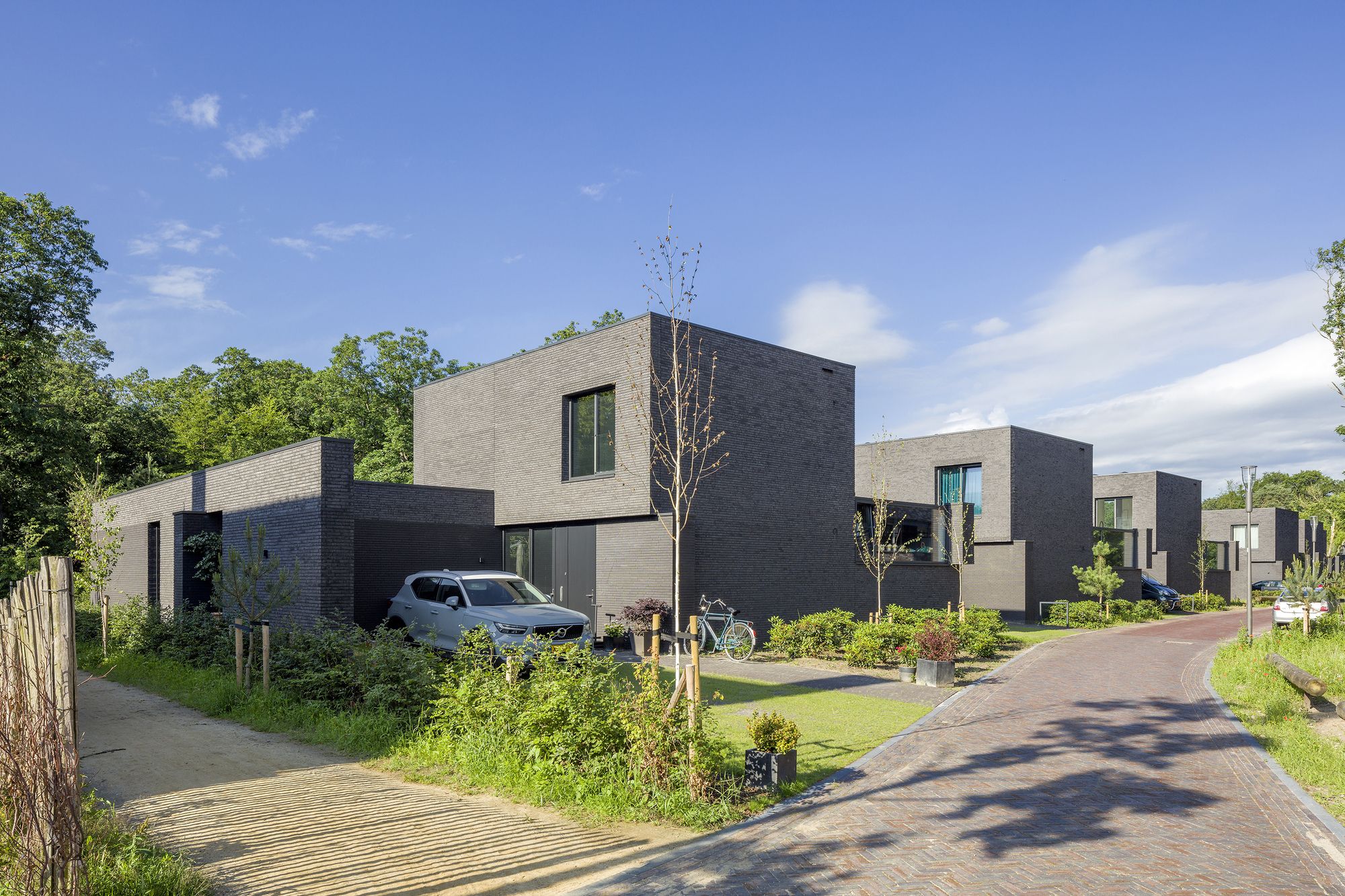
© Rob van Esch
The patio is the heart of the villa: all main living quarters are arranged around it. The upper floor adds a vertical accent to every villa, making it recognizable from its neighbor, and adding privacy for the patios in relation to the ensemble of the higher apartment buildings in the background. Most importantly, the upper floor offers a higher elevation from which the Utrecht Landscape can be enjoyed in a different way.
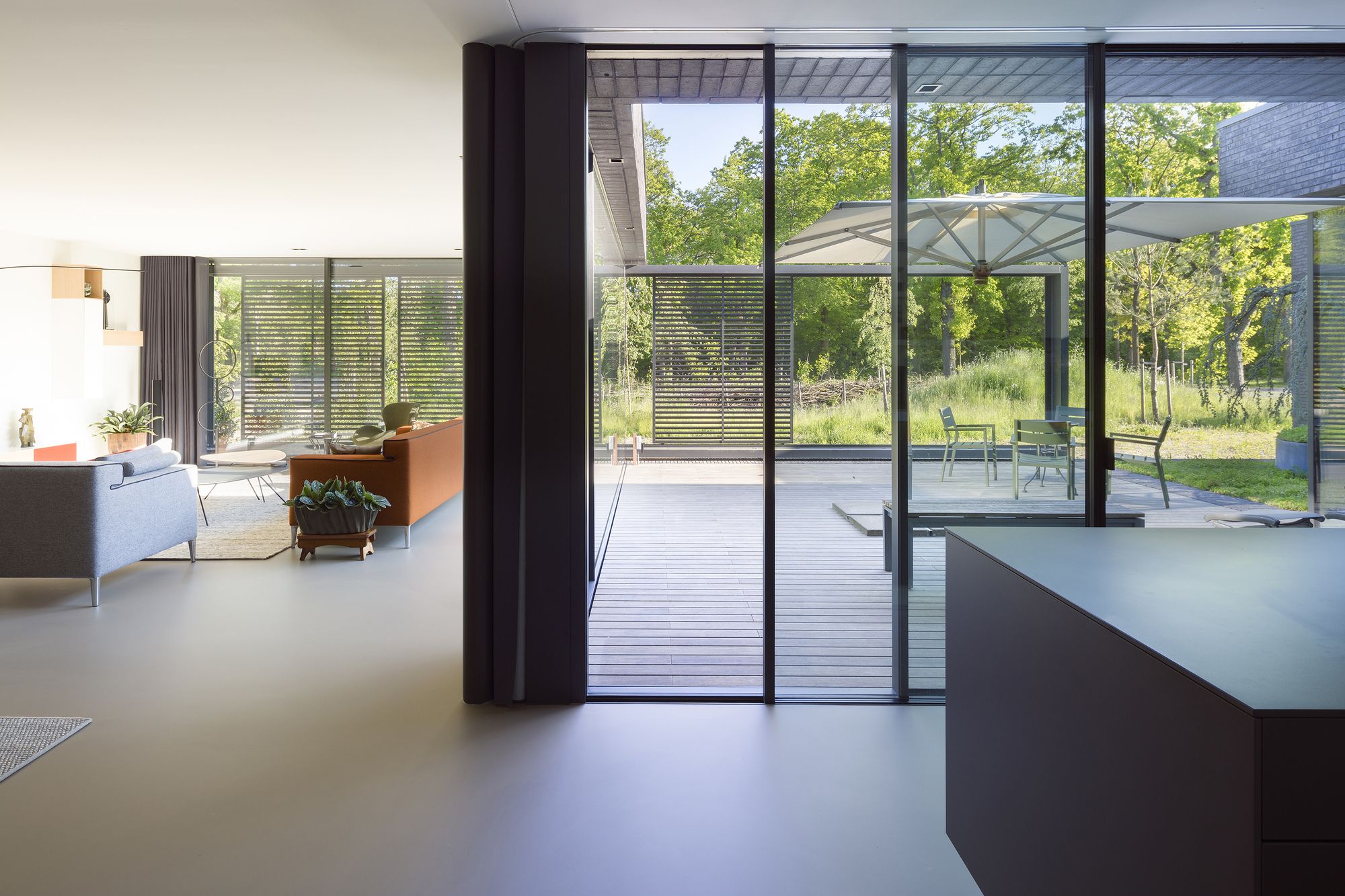
© Rob van Esch
The eyecatchers of the villas are the glazed southwest-oriented facades facing the forest. Their thin minimalistic frames –sunken into the floor and into the ceiling- maximize transparency and enhance the feeling of living directly in the forest. Every villa has a frame with sliding panels for individually controlling privacy and sunlight penetration.
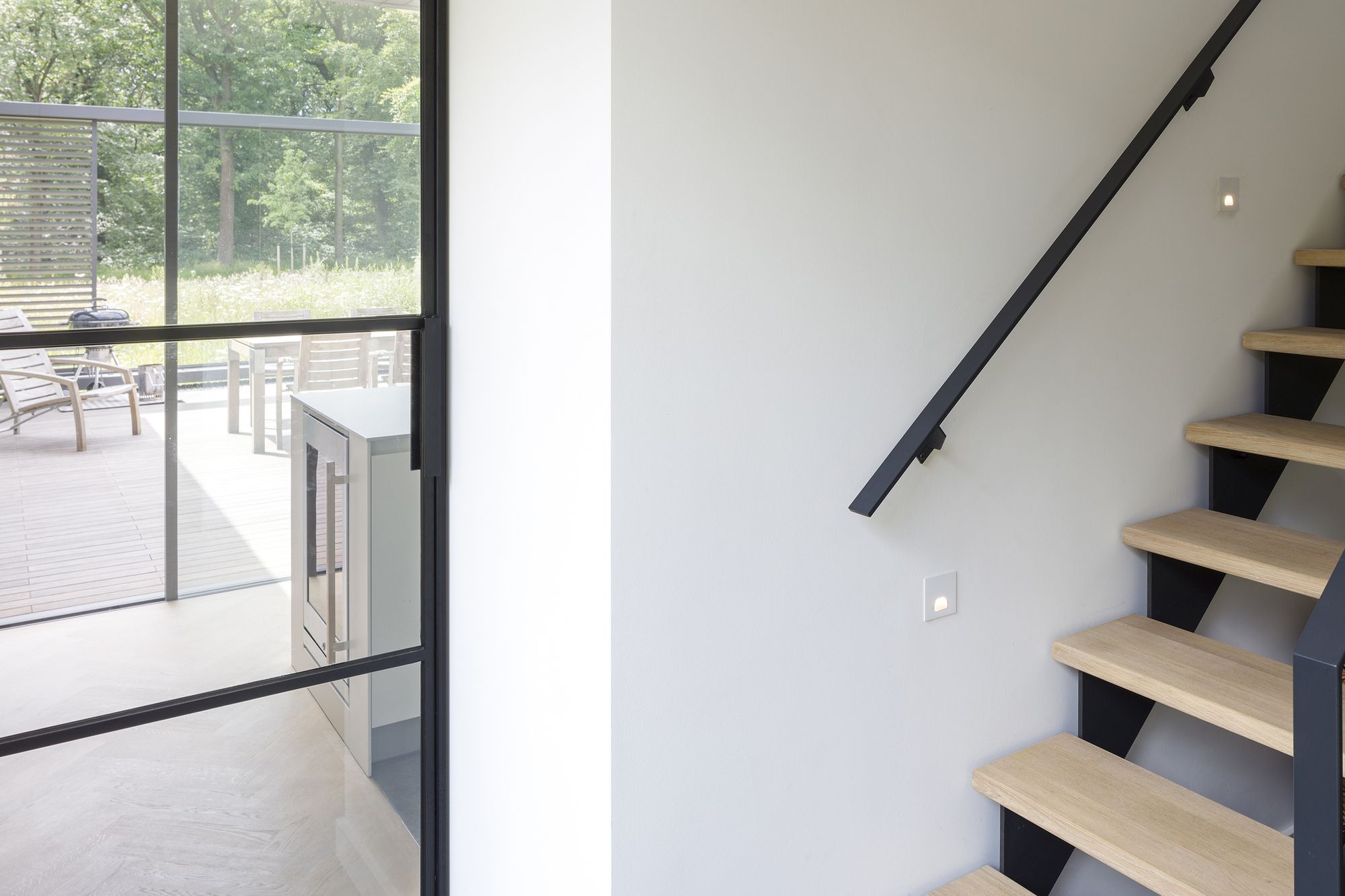
© Rob van Esch
The horizontally arranged villa volumes are being reinforced by elongated bricks laid in courses with deeply recessed horizontal joints. The vertical joints are completely omitted. Two different brick types with subtitle differences in color and layout organize the façade and accentuate the position of entrances and other openings. The dark colors of the partially glazed bricks are discreet and allow trees to dominate the overall impression. The result is a solid and sober ensemble with a timeless ambition.
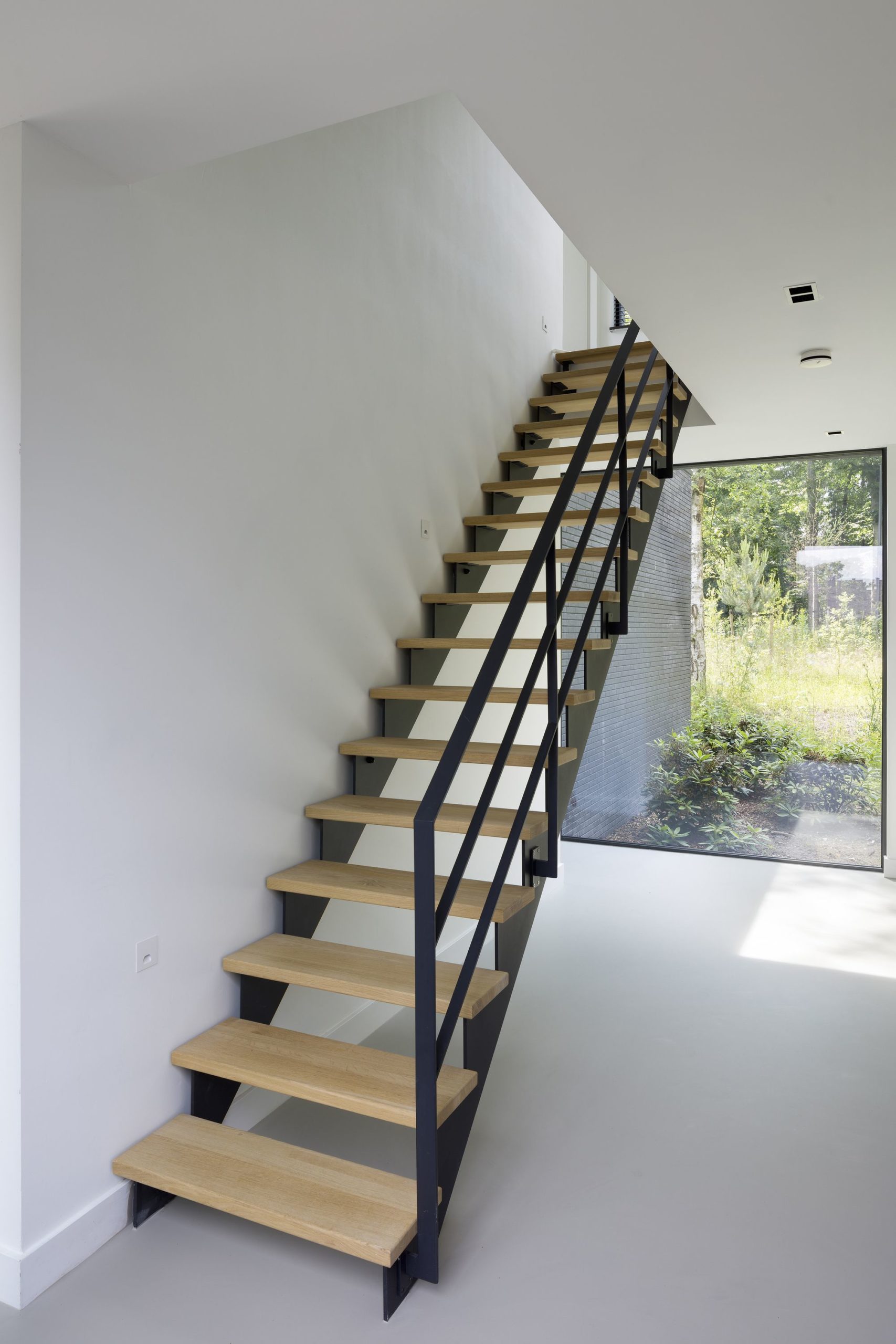
© Rob van Esch
The villas’ typology answers to the demand for spacious ground-floor living quarters with generous private outdoor space but without the hassle of garden maintenance. There are three types of villas, measuring 187, 204, and 214 square meters respectively. The age-accommodating residences arrange their main functions on the ground floor around the patio. wUrck developed different space arrangement scenarios that anticipate owners’ needs in the future as they age or their lifestyle changes.
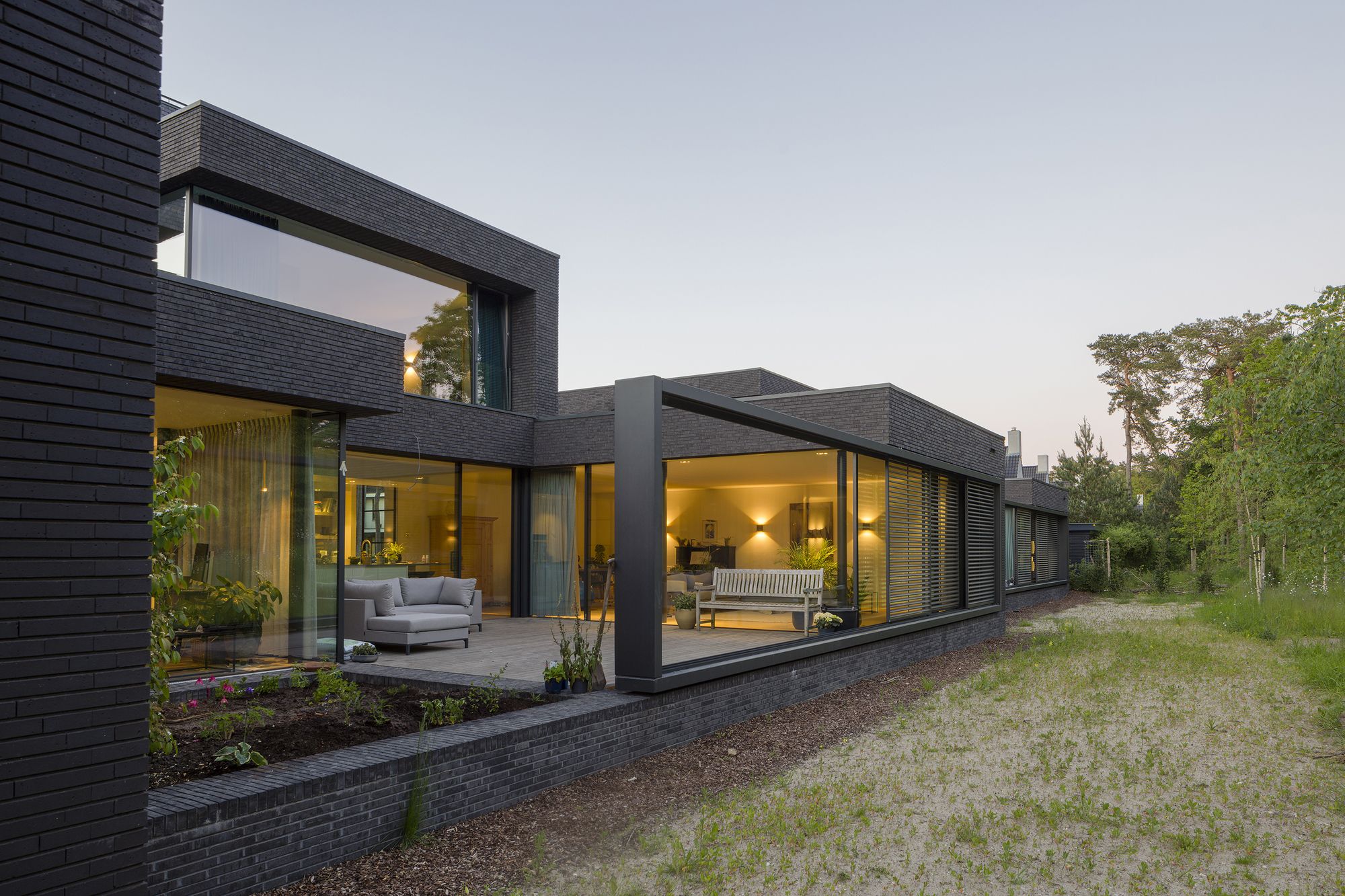
© Rob van Esch
Project Info:
Architects: wUrck
Location: Zeist, The Netherlands
Area: 1830 m²
Project Year: 2021
Photographs: Rob van Esch
© Rob van Esch
© Rob van Esch
© Rob van Esch
© Rob van Esch
© Rob van Esch
© Rob van Esch
© Rob van Esch
© Rob van Esch
© Rob van Esch
© Rob van Esch
© Rob van Esch
© Rob van Esch
© Rob van Esch
© Rob van Esch
© Rob van Esch
Ground Floor Plan
First Floor Plan
Concept Sketch


